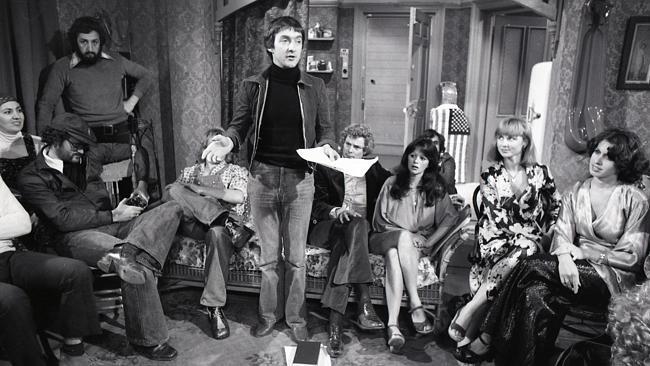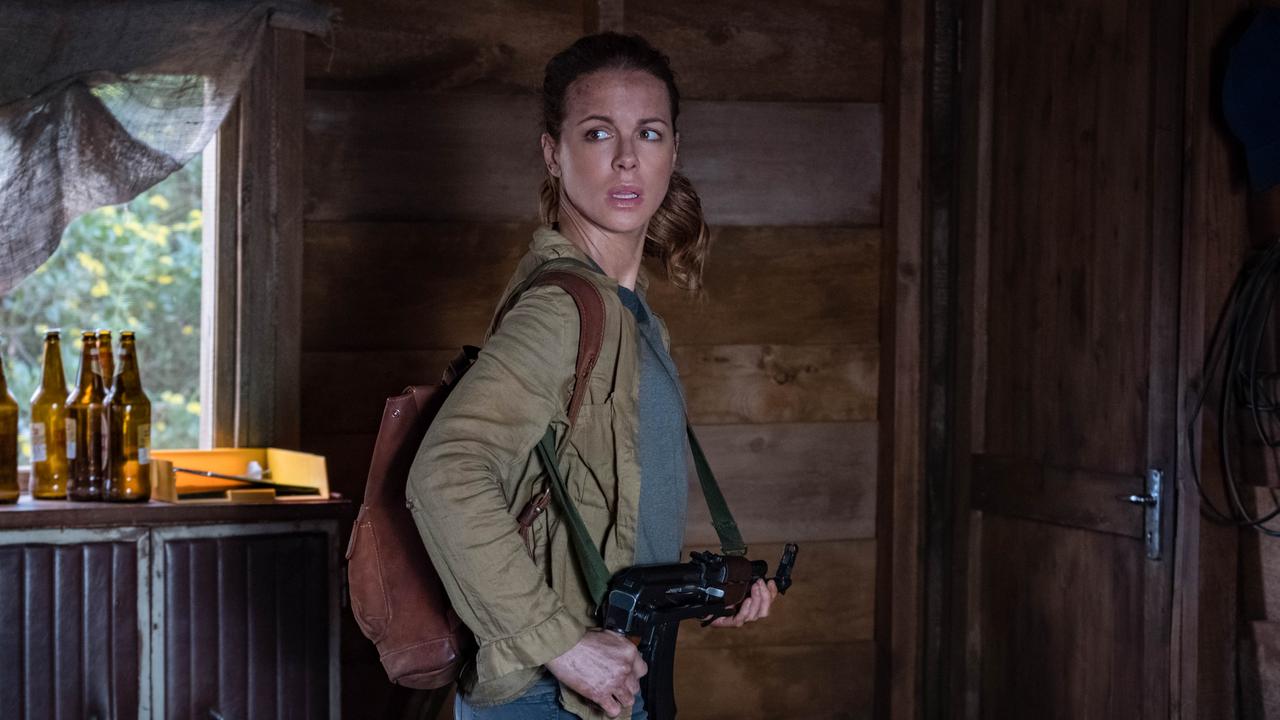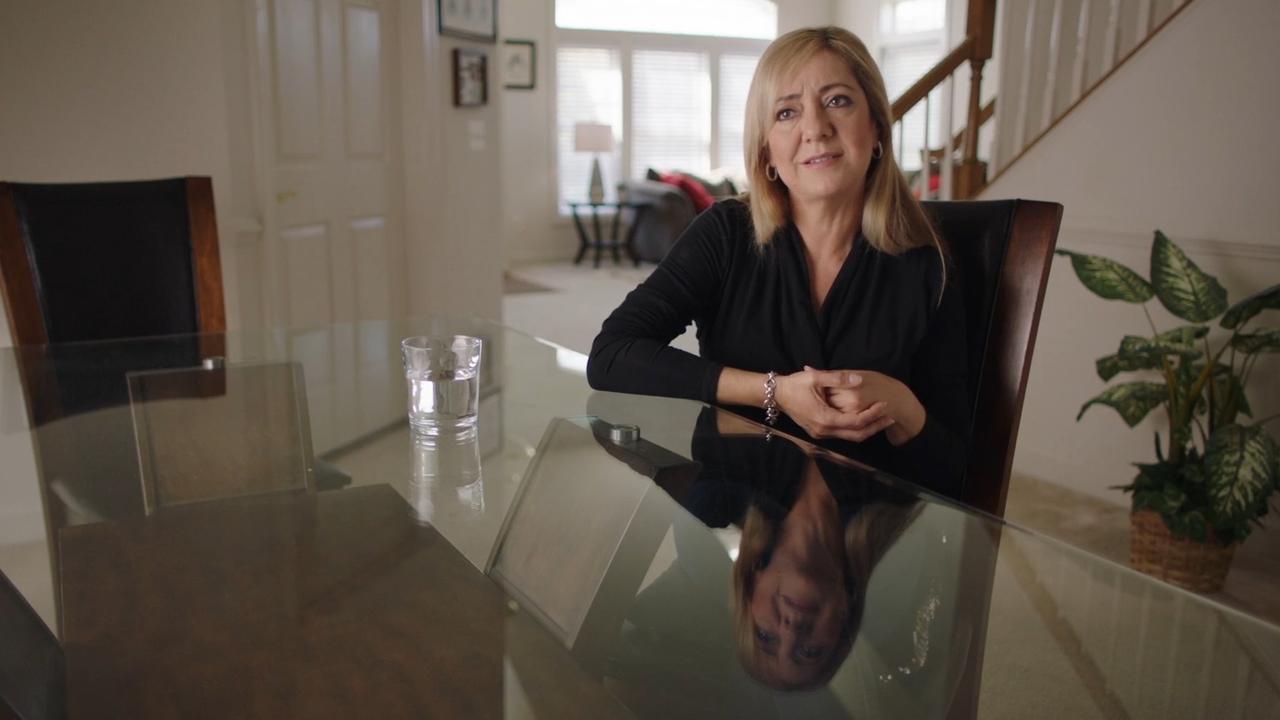We got naked for progress
ALVIN Purple tested the limits of a staid society, blazing a trail for others.

LATE in 1964, when I started working as an actor professionally, Graham Kennedy caused 250,000 cathode tubes to blush pink when he used the Great Australian Adjective on camera during his hugely successful show In Melbourne Tonight.
The use of the expletive (he referred to his “bloody” desk) caused more shock in Melbourne homes than Britain’s Profumo scandal involving government ministers, spies and prostitutes.
Censorship was severe. Arthur Rylah, the earnest, whey-faced chief secretary, was the literary ruler of Victoria. He liked to arrive at Essendon airport after an overseas “fact-finding mission” vowing to “fight to the last ditch” to keep pornography out of his state. Rylah found pornography overseas whenever he looked for it.
The Theatres Act gave him powers to prosecute booksellers, printers and theatre and cinema managers for obscenity.
In the late 1960s, I was arrested and found guilty of “aiding and abetting obscene language in a public place” when I directed a play about racism called Norm and Ahmed, which finished with the words “f ..kin’ boong”.
Then a controversial play in which I appeared in the car park at Melbourne’s La Mama theatre, an ensemble agit-prop effort satirising Rylah’s attempts to silence the theatre, was watched by more than 1000 spectators. Its finale was a refrain sung by the show’s band playing on a raised platform above the action. “Shit, f..k, c..t, fart, bugger off, will ya?” they sang, the crowd picking up the band’s exhortation. As they did, 10 plainclothes police officers grabbed actors and members of the audience alike.
There was no film industry in Australia, except for small production houses making television commercials and occasional documentaries, but I did star in a documentary feature movie produced by Phillip Adams called The Naked Bunyip, subtitled “The First Serious Study of Sex and Censorship in Australia (In a Funny Sort of Way)”. I played a reluctant market researcher, a fearful, buttoned-up kid allocated “sex” by his boss for a survey of Australian social manners. Diffident and easily bored, I would have preferred to research agriculture, I told my boss in the film, my lines superimposed on a series of comic close-ups.
In a world of stocking tops, sex toys and floating breasts, my days and nights filled up with full-frontal assaults on propriety and long-obeyed taboos. In smoky rooms, I peered at provocative dancers and voluptuous posing nudes, and dream playmates advanced towards me in filmy black underwear or schoolgirl uniforms. I debated issues with public morality inspectors and the questions for which I was attempting to find answers were sometimes confusing and often confronting.
Was there really a connection between pornography and erotica, and anti-social behaviour? Would the glimpse of a bare breast or penis lead to the white slave or drug trade? And why was censorship — a political tool — such an affirmation of the superiority of the censor, either as an individual or representation of a class?
When the film was about to be released, chief censor Russell Prowse leapt on the footage with a savage cry, and provoked a censorship wrangle that ensured the small-budget film was a roaring success.
It was Adams’s mission to show that Australia’s censors were far more concerned with the horrors of love-making than they were with the joys of murder.
The censors refused to see how ridiculous this was. The sight of an ageing life-class model’s pubic hair brought cries of horror. Such sights might be seen in art journals and galleries, and, yes, they were not actually erotic, but they had to go. Snip, snip, and another piece of The Naked Bunyip hit the floor.
Then there was controversial Alvin Purple, in which I also appeared, the direct result of a change in censorship laws in Australia, allowing the public exhibition of once banned movies, and censorship became part of the new film’s subject, a target for its satire.
Customs minister Don Chipp had set up a classification system in late 1971 to prevent the practice of banning films outright. The new R rating meant films could be restricted to people over 18. Cinemas were flooded with cheap imported movies like The First Nudie Musical, Swedish Fly Girls and Trader Horne . Production budgets were bumped up, plots became less banal and camerawork became slicker than the grindhouse movies from which they originated. The naked bed-hopping, complete with generic schlock sensibility, saturated colours, soft focus and bad-but-good lighting, made distributors squeal with pleasure.
Alvin, some might recall, was a character frozen in an adolescent dream of an irresistible youth and a host of perpetually available and invariably beautiful women. Invariably naked women, it must be added. There it was: the premise, the story, the hook, the joke. One hundred minutes of joke.
It was a huge hit and widespread nudity became a fact of life in the TV studios and film sets of the 1970s. It was as though producers, directors and writers saw Australia developing into a kind of sexual Utopia, a social Garden of Eden where sex was beautiful, society enlightened, and serpents had no sting. Conservative critics of course kept throwing their hands in the air. “Films like this risk making all of us numb,” they wailed of Alvin. “Its success strips us of the ability to feel outrage.”
Outrage there was, though, when TV gobbled up poor little innocent Alvin after the success of Alvin Purple and Alvin Rides Again, the inevitable sequel. Since there was no apparent escape, I decided I might as well go with the flow.
In 1976, a series was made for the ABC. An opening statement coyly warned Alvin’s viewers that they might encounter naked people — and sometimes they did — but there was very little unabashed nudity and viewing was not mandatory. Four or five nice-looking girls undid a button and otherwise groaned and sighed around actor Chris Haywood, Alvin’s new best mate, who, bearing a silly expression like a lad who couldn’t half believe his luck and a young Lochinvar hairdo, flashed his purple-specked underpants.
Otherwise, there wasn’t much nudity unless you counted the Blundell chest. “If it raises a laugh, someone should tell the Guinness Book of Records,” critics wrote. “It’s so juvenile it might as well have been called Mr Squiggle Does Melbourne.”
One critic saw the series somewhat in the tradition of the Doctor in the House movies, “with Graeme Blundell, sporting a Beatle mop, the equivalent of Dirk Bogarde, who made a fool of himself playing Dr Sparrow: ‘Big breaths, Angela.’ ‘Yeth doctor, and I’m only 15’.”
More naked than anything was my own sense of embarrassment as each half-hour was supposedly about Alvin’s inexhaustible sexual capacity, subtly emphasised by the letter ‘I’ in the main titles taking the form of a penis. It was still that kind of era, regardless of the stern gaze of the horse-riding grazier prime minister Malcolm Fraser. After only three episodes were screened, the series was banned by the ABC chairman, the appropriately named Henry Bland.
A press statement suggested the ABC commissioners “felt there was scope for some improvement in the overall presentation” of Alvin Purple, which created a scandal out of all proportion to the show’s content.
“It ought to be burned,” the autocratic Sir Henry said more bluntly. The fact Alvin was top of the Sydney ratings obviously meant nothing to the blundering bureaucrat. Bland’s actions were front-page news (“Alvin Pulled Off”) and editorials lambasted “the sheer craziness” of a situation of the ABC chairman playing Mrs Grundy over a show that manifestly failed to offend most of its two million viewers. Bland was defiant. When asked if he would consider resigning, he replied, “Look, boy, don’t ask silly bloody questions.”
He said he found it difficult to understand why the ABC should subsidise such puerile comedy when people could see that sort of thing “in the picture houses or on commercial television”. He didn’t realise the money had already been spent, and 10 episodes were already in the can.
Alvin reappeared months later — Bland lasted only five months — but it was hardly a voyeuristic experience. For years after the series was screened, I was stopped by people in shops and in the street who wanted to tell me they were not allowed to watch the show on TV when they were kids but their parents loved it. Or who whispered that they had their first sexual experiences behind the couch in their living rooms when Alvin was shown. I would lose track of the number of women who said to me on trams and trains, and in shopping malls all over Australia: “I started having sex because of you.”
Eventually the Seven Network purchased the series as part of a package deal worth $150,000, which for me meant yet more prime time, high-rating appearances for no extra fees. At least the censors left me alone




